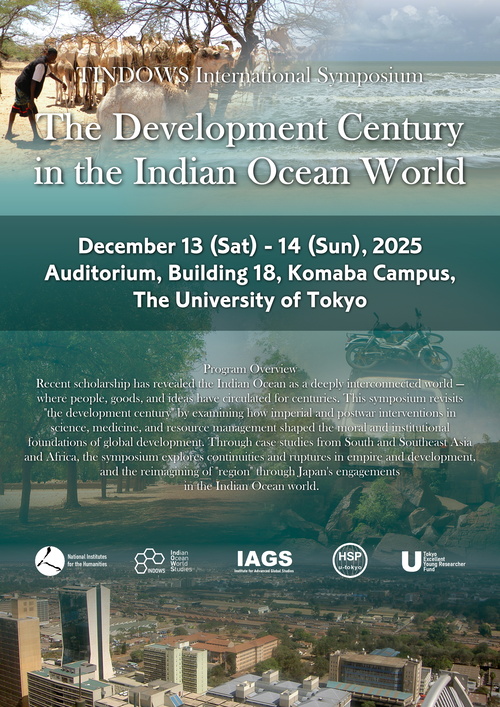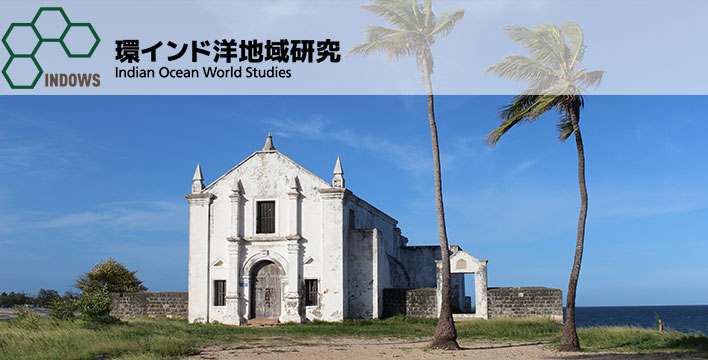Activities as the INDOWS projects FY2025
【Tokyo University】International Symposium: "The Development Century in the Indian Ocean World"
| Date | December 13-14, 2025 |
|---|---|
| Venue | Auditorium, Building 18, Komaba Campus, The University of Tokyo |
| Details | Center for Indian Ocean World Studies at University of Tokyo (TINDOWS) will host the 2025 INDOWS International Symposium on December 13 and 14, focusing on the topics of Environment, Medicine, and Development. Symposium will be held in-person only. For details and registration, please refer to the link below. TINDOWS Website |
 .jpg) |
